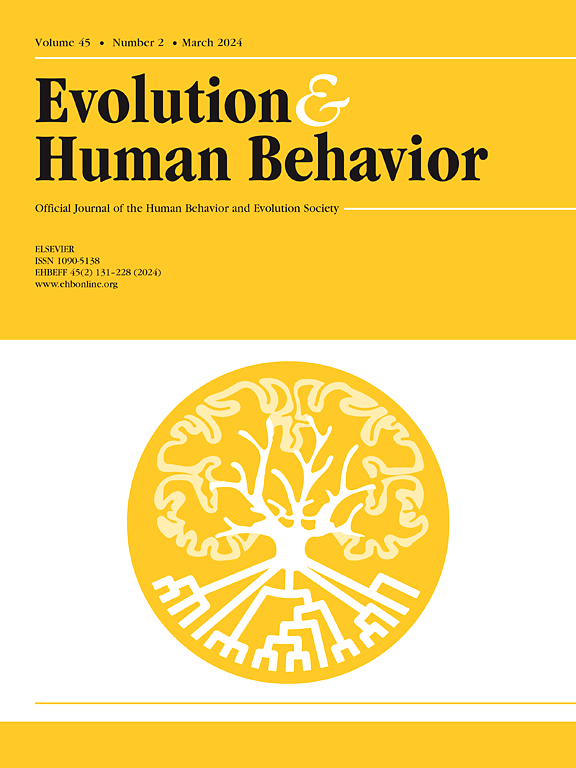运用包容性适应和生态进化理论来模拟文化进化
IF 3.2
1区 心理学
Q1 BEHAVIORAL SCIENCES
引用次数: 0
摘要
Baumard和andr本文章由计算机程序翻译,如有差异,请以英文原文为准。
Using inclusive fitness and eco-evolutionary theory to model cultural evolution
Baumard and André (2025) have suggested that cultural dynamics can be studied as a form of ecology. This provides a simpler unified approach to explaining cultural evolution, within the context of human behaviour being shaped by natural selection. We briefly expand on two points: (1) why inclusive fitness represents our most general answer to what organisms are selected to maximise; (2) the potential for using existing eco-evolutionary theory methods to model cultural evolution.
求助全文
通过发布文献求助,成功后即可免费获取论文全文。
去求助
来源期刊

Evolution and Human Behavior
生物-行为科学
CiteScore
8.30
自引率
9.80%
发文量
62
审稿时长
82 days
期刊介绍:
Evolution and Human Behavior is an interdisciplinary journal, presenting research reports and theory in which evolutionary perspectives are brought to bear on the study of human behavior. It is primarily a scientific journal, but submissions from scholars in the humanities are also encouraged. Papers reporting on theoretical and empirical work on other species will be welcome if their relevance to the human animal is apparent.
 求助内容:
求助内容: 应助结果提醒方式:
应助结果提醒方式:


